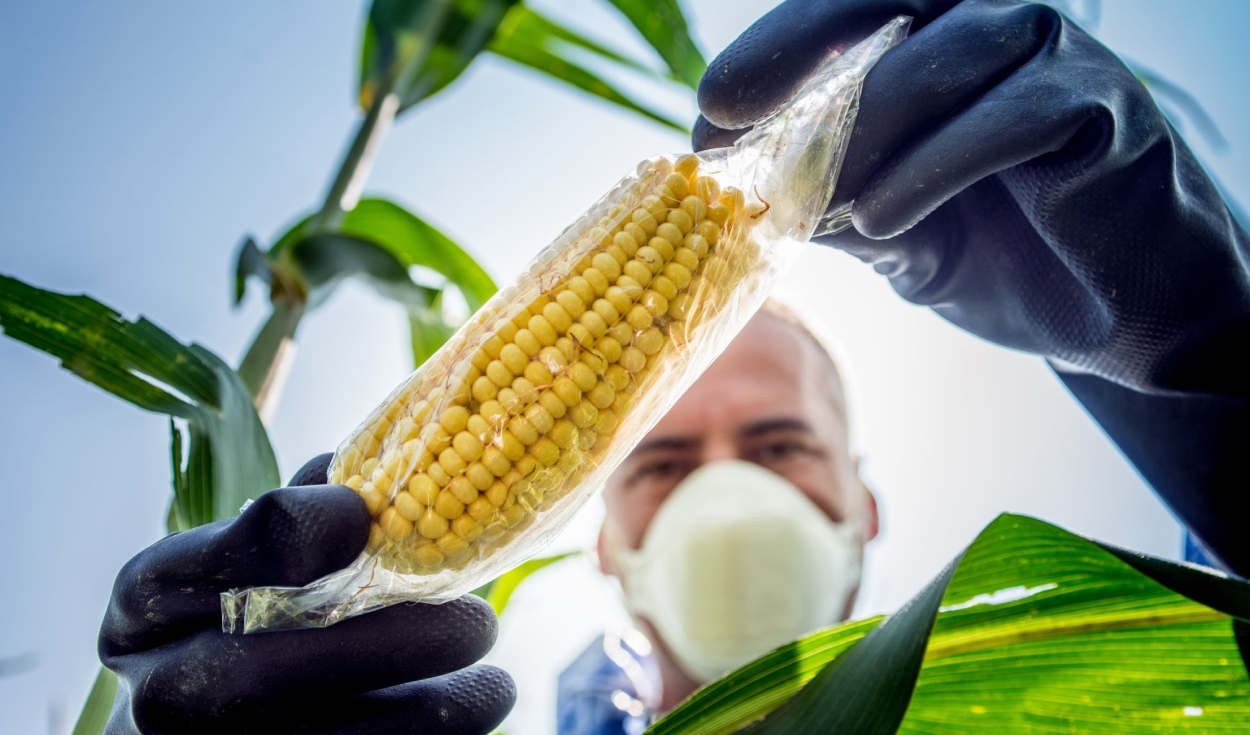
Some congressmen insist on canceling the moratorium on the entry and production of transgenics in Peru that is set until December 31, 2035. Through the bill 09475/2024-CR, Alejandro Cavero, Adriana Tudela and Edward Málaga seek to modify the Standard 27104 with the purpose of guaranteeing the use of modified living organisms (OVM) for productive innovation and competitiveness.
Recently, these parliamentarians met with the head of the Ministry of Agrarian Development and Irrigation (Midagri), Ángel Manero, to analyze the scope of this initiative that is openly rejected by the agricultural unions and that is pending discussion in the agrarian commission presided over Popular Force.
According to Luis Cruz, manager of the National Convention of Agro (Conveagro), lifting this restriction would put our agrobiodiversity at risk and would affect the economy of small farmers.
“Several studies have shown that there is danger to our native products and we also think that our position in the world is at risk as a biodiverse and transgenic country, which has opened many doors to carry our
Organic products, ”he explained to this medium.
Another possible negative impacts is health. As Cruz recalled, transgenic corn crops are associated with the use of herbicides such as glyphosate. Precisely, the World Health Organization (WHO) declared this chemist in 2015 as “probably carcinogen for human beings.”
For his part, Ángel Villavicencio, coordinator of ‘Cultivating the change’ of Fovida, said that the intrusion of the OVM could alter the natural balance, cause genetic pollution and displacement of native products.
“From the Midagri It is said that the agricultural sector has had a growth in terms of productivity and, in addition, that our agro -exports have reached historical results. If everything works well, what is the reason why we would have to bring transgenics to Peru? It is something contradictory. Despite the attacks of climate change, the agricultural system is giving results and is at a time of growth, ”he added.
Protect native seeds
Given the alert that this parliamentary initiative has generated, various agricultural organizations of regions, articulated to the Native Seed Drive Group (Grisen)They have been working on the formulation of a proposal to protect native seeds and their traditional systems, which has the support of legislators such as Sigrid Bazán and Heidy Juárez.
Some of the central compounds of this proposal would be the incorporation of mechanisms to preserve our natural heritage against the Biopiracyintegrate native seeds into food security programs, guarantee common participation and strengthen strategies for marketing.
“We propose the need for the State to recognize the use of seeds as Peruvian heritage and stop maintaining them in an informal system. In addition, that from the state programs, the free exchange and trade of traditional seed systems is encouraged, ”said Villavicencio.
Although the family agriculture It supplies 83% of the foods consumed by Peruvians in their homes, there is no rule that guarantees the protection of native seeds. For Aurora Coronado, of Fenmucinap, it is essential that the role of women, youth and adults in the management and transmission of knowledge is ensured.
“This initiative is from the indigenous peoples themselves to recover our ancestral knowledge and that respect our traditions. We have been making incidence for four years with congressmen in our bases. We don’t want transgenic”He said.
Source: Larepublica
Alia is a professional author and journalist, working at 247 news agency. She writes on various topics from economy news to general interest pieces, providing readers with relevant and informative content. With years of experience, she brings a unique perspective and in-depth analysis to her work.












